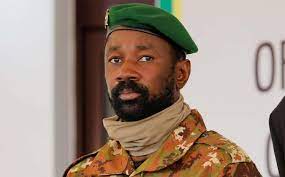APA – Bamako (Mali) This call for fresh talks comes at a time when hostilities between the protagonists to the conflict resumed in various parts of Mali.
Almost a year has passed since the total breakdown of talks between the Malian parties that signed the 2015 peace agreement. Eight years after the signing of this peace deal, it is the first time that the sides have gone so long without discussing its implementation.
On several occasions, they have come close to resuming hostilities in violation of the ceasefire signed in May 2014, following the turbulent visit of former Prime Minister Moussa Mara to Kidal, considered the stronghold of the former rebels of the Coordination of Azawad Movements (CMA).
The United Nations Multidimensional Integrated Stabilization Mission in Mali (MINUSMA), which was the guarantor of the ceasefire, is no longer involved in this task and is concentrating all its activities on its withdrawal, which began on July 1 and is due to end by the end of the year at the latest. As a result, the Malian authorities are taking advantage of the bases handed over by MINUSMA to redeploy their troops in areas formerly under the total control of the armed groups that signed the agreement.
This situation is at the root of the resumption of hostilities between the parties to the agreement. This was most recently the case when MINUSMA withdrew from its base in Ber, a town about 60 km northeast of Timbuktu, which had been under the control of ex-rebels for a decade.
In addition to driving the ex-rebels out of the town, the Malian army also raised the national flag in several strategic locations in the town, including the sub-prefecture building, which served as the office of the ex-rebel command in the area. For the latter, the terms of the 2014 ceasefire provided for a freeze on the positions of the various protagonists.
Against this backdrop of an almost certain resumption of hostilities, the authorities have issued this communiqué in order to play the appeasement card. In this document, the minister in charge of the agreement, Colonel-Major Ismaël Wagué, invited “the brothers of the signatory movements of the Agreement for Peace and Reconciliation in Mali to return to the negotiating table of the peace process in order to overcome the current challenges through dialogue”.
He concluded by reaffirming the government’s commitment “to the Agreement for Peace and Reconciliation in Mali and to the ceasefire agreement of May 23, 2014. It remains to be seen whether this invitation will be heeded, for nerves are raw.
At the same time as this communiqué was published, air strikes by the Malian army were reported in Anefis, a town more than a hundred kilometers south of Kidal. For the moment, it is not known whether the targets of these strikes were ex-rebels, although they had occupied this position for a decade.
MD/ac/lb/as/APA


